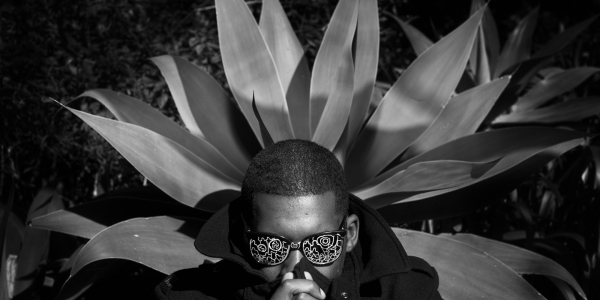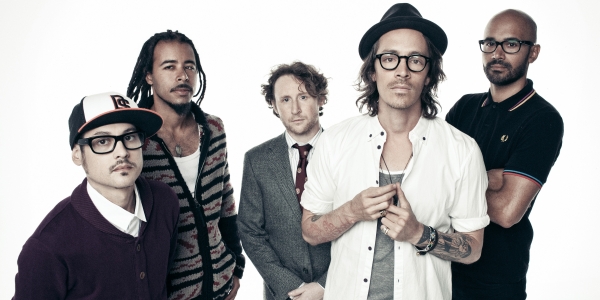“I started the label by having all these amazing friends – a lot of us lived in the same apartment building,” Ellison says of Brainfeeder’s humble beginnings. “There was a lot happening at the time, and it was a scene with so much potential and a lot of labels were really interested in what we were doing.” And what is it that makes Brainfeeder stand out from the other slew of labels all attempting to push the whole bass-music thing that’s got everybody watching on carefully at the moment? “I think it has to do with the intent,” Ellison muses. “Obviously, there’s a definite connecting sonic thread with these artists, but I think a lot of the time, I’m interested in what people are trying to say with their music and where they want to go is, what their goal and their sound is – it’s fascinating to me.”
Brainfeeder’s home seems to be with Low End Theory in Los Angeles – which is run by the label, and as Ellison explains, “It’s a very eclectic scene there, and the last few years have seen some really amazing things go on. It’s on a Wednesday night, every week, and even though it’s a Wednesday, you never know what happens.”
Ellison’s third LP Cosmogramma was released in April 2010 to universal acclaim, making many an appearance on reviewers’ and critics lists of favourite releases from the year. Deservedly so, too. While his work as a producer has always been a cut above many others, Cosmogramma was a defining moment in his career – a collection of sounds and jams that form a uniquely cohesive whole. It’s the sense of interconnected sounds and ideas that made it such an appealing listen for many that year.“There’s definitely a story to it,” he says of Cosmogramma. “It took a long time to put together, and it definitely took up a lot of my creative universe – it’s one of the favourite creative projects I’ve ever worked on. It meant the most to me.”
It’s a stunningly-wrought album – futuristic and seriously danceable beats fused with a reliance on live instrumentals and sampling that Ellison was only beginning to experiment with during the creation of Cosmogramma. “It took a little time, wrapping my head around working with other people,” he says. “For a long time, I was really hard-headed and I wanted to do everything myself in the studio – no other people, just me and my music. But with Cosmogramma, I kinda’ opened up the door a little bit and allowed other people to say things with their music on mine. It was nice. It definitely took a bit to get used to different people’s energy and the way different people like to work, but it was great. I always try to keep musicians around when I’m making new stuff, because I like to be open.”
For those of you who treasure your CD or vinyl copies of Cosmogramma, you might have heard that Ellison has released a number of outtakes from the album online, providing a download link through Trigger, a webcam program which recognizes the album’s artwork – a reward for those who still believe in going out and purchasing music in record stores and shops, as opposed to downloading the latest thing to be uploaded on the internet? “Absolutely. It’s something that we like to do, and we’re going to do something again, something similar with this record. It annoys me, but it is what it is, now. More than anything, I get more upset when things get pulled out of context – say a record were to leak early, before people knew what the context was. Before the artwork, before the artwork – people not knowing the story frustrates me because it’s the most important part. With Cosmogramma, I didn’t want to do any singles for it, because it was all one piece – when I rearranged the promo to have it, I made sure not to put any track breaks in it, so it could have a singular vibe for whoever was going to talk or write about it.”
Describing his live setup as a hybrid mix of a DJ set and a live performance of his own material, it’ll be getting an airing both in darkened clubs and sunny outdoor music festivals while down in Australia in January. On comparing the two, he explains, “It’s different for several reasons. On a more primitive level, the festivals are often a lot bigger than the club shows, and the people there are a lot more willing to go off – partying a lot harder, and at festivals people are more willing to check out artists they’ve never heard before. It’s an introduction for a lot of people, and a lot of the time you find yourself trying to win new people over.”
I’m curious to see what he thinks of the future of bass music, and Ellison is optimistic. “I think it is inevitable that it will survive, and also inevitable that it changes – as long as we continue to push forward and explore different avenues and ideas, and tempos or rhythms – there’ll always be bass music, there’ll always be something you can say with electronic music.”







